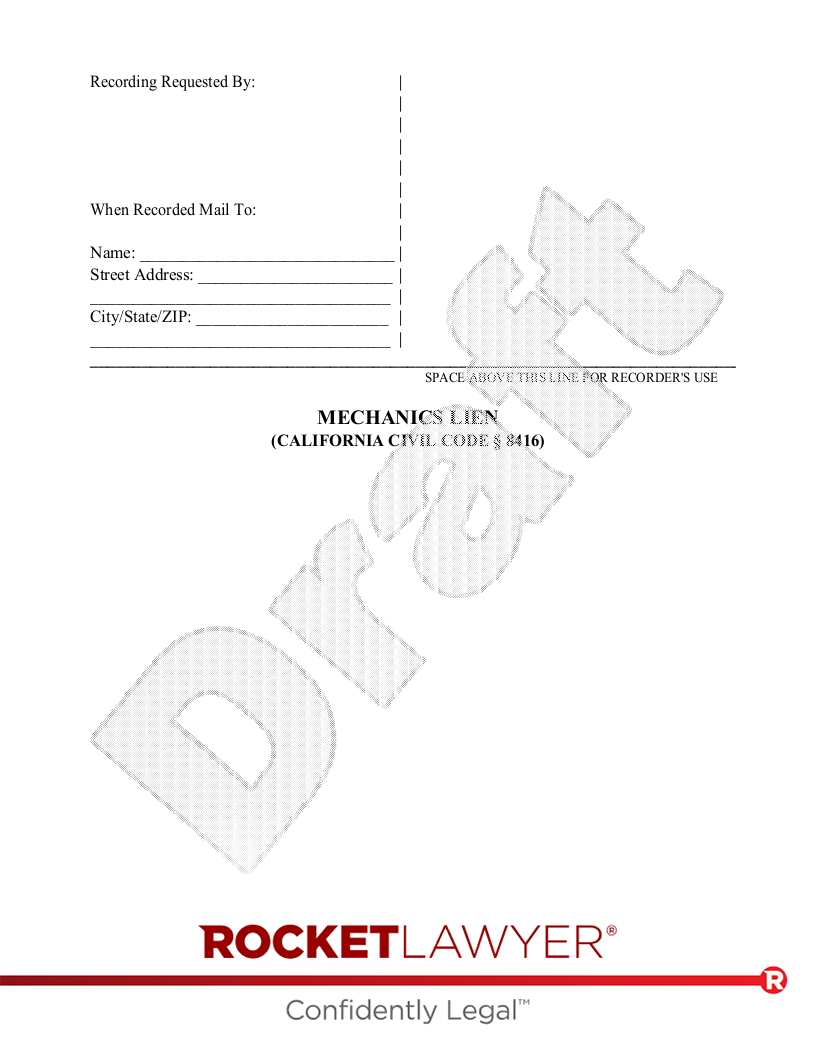Mechanic's Lien
The most common type of lien is what's usually referred to as a Mechanic's Lien. Sometimes called "construction liens," "laborer liens," or "artisan's liens," they are filed by contractors, subcontractors, or construction firms. Basically, anyone who works on a property or improves it would use this type of lien, including roofers, carpenters, plumbers, and more.
What happens is this: a contractor takes a job to improve a property and makes a contract with the property owner. The contractor then performs the work. But the property owner either pays the contractor a fraction of the agreed upon price or does not pay at all. At this point, the contractor can file a Mechanic's Lien.
Generally, this means that the contractor files in the county in which the work took place. Attached to the filing is a bill for the work completed. At this point the lien will be "answered" and a court date may be set. If the court affirms the lien, the contractor now has a lien on the property, effectively giving he or she the right to take possession of the improved property if the debt isn't paid within a certain time frame.
Judgement Lien
Like a mechanic's lien, a Judgement Lien can give a creditor the right to take possession of a debtor's property. But unlike a Mechanic's Lien, a judgement lien is not for any particular work performed. Instead, it's filed when a creditor hasn't been paid for other circumstances not covered under the definition of a mechanic's lien.
For example: say a man enters into a contract for brochures with a printing press. The printing press provides these but the man doesn't pay. The printing press can file a lien for the cost of the debt with the state or county and, like in a mechanic's lien, the court will rule on its legitimacy. If the lien is granted, it gives the creditor (in this case, the printing press) the right to take possession of property valued at the amount of the lien.
Keep in mind that the procedures, laws, and rules around both Mechanic's and Judgement Liens are different in every state and locality. Check with a local attorney or county clerk to get the details. It's a good idea to try and collect your debt yourself or through a debt collector, but, if worse comes to worse, liens are a way to get some sort of payment for the work you're owed.
This article contains general legal information and does not contain legal advice. Rocket Lawyer is not a law firm or a substitute for an attorney or law firm. The law is complex and changes often. For legal advice, please ask a lawyer.
